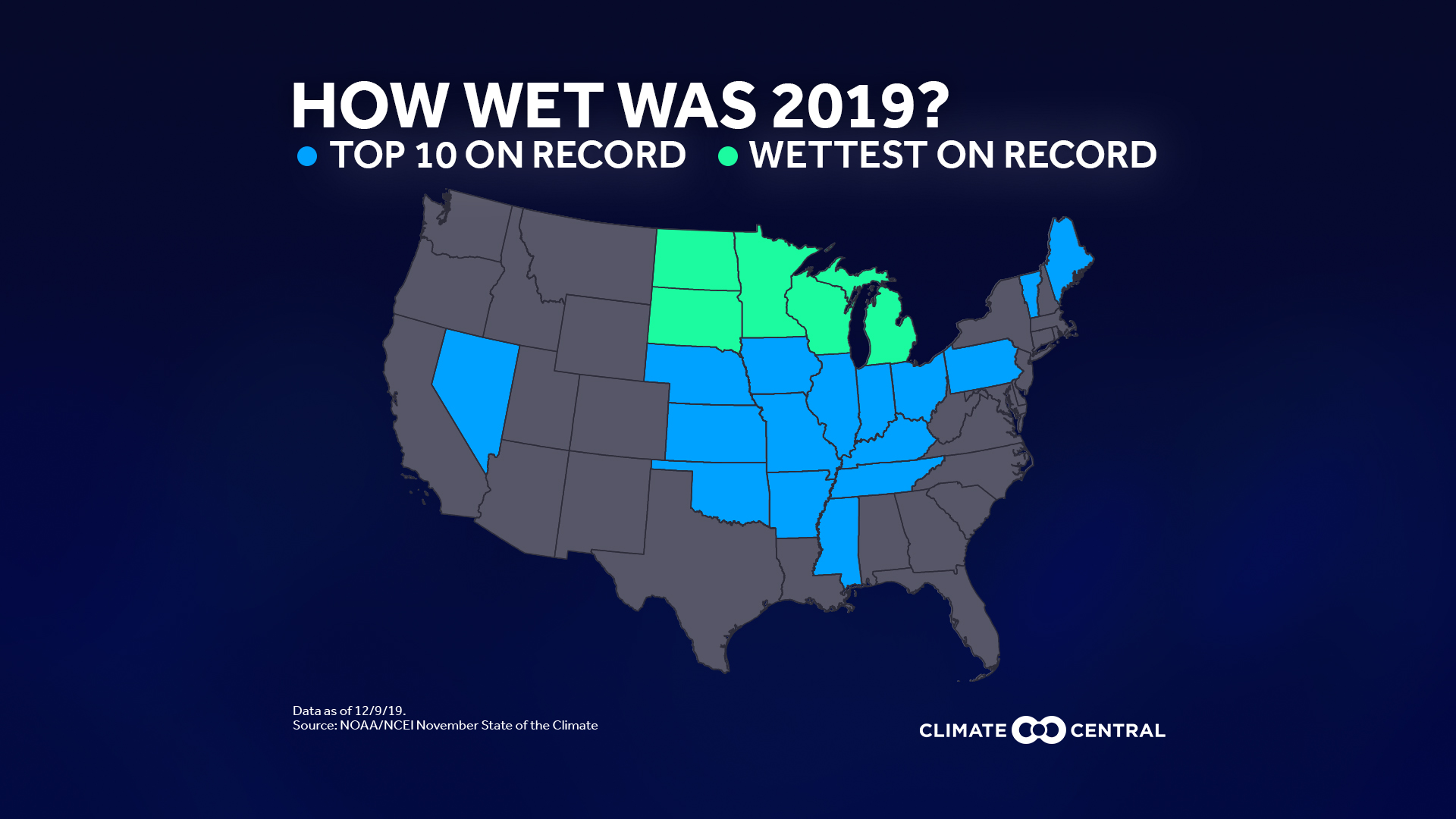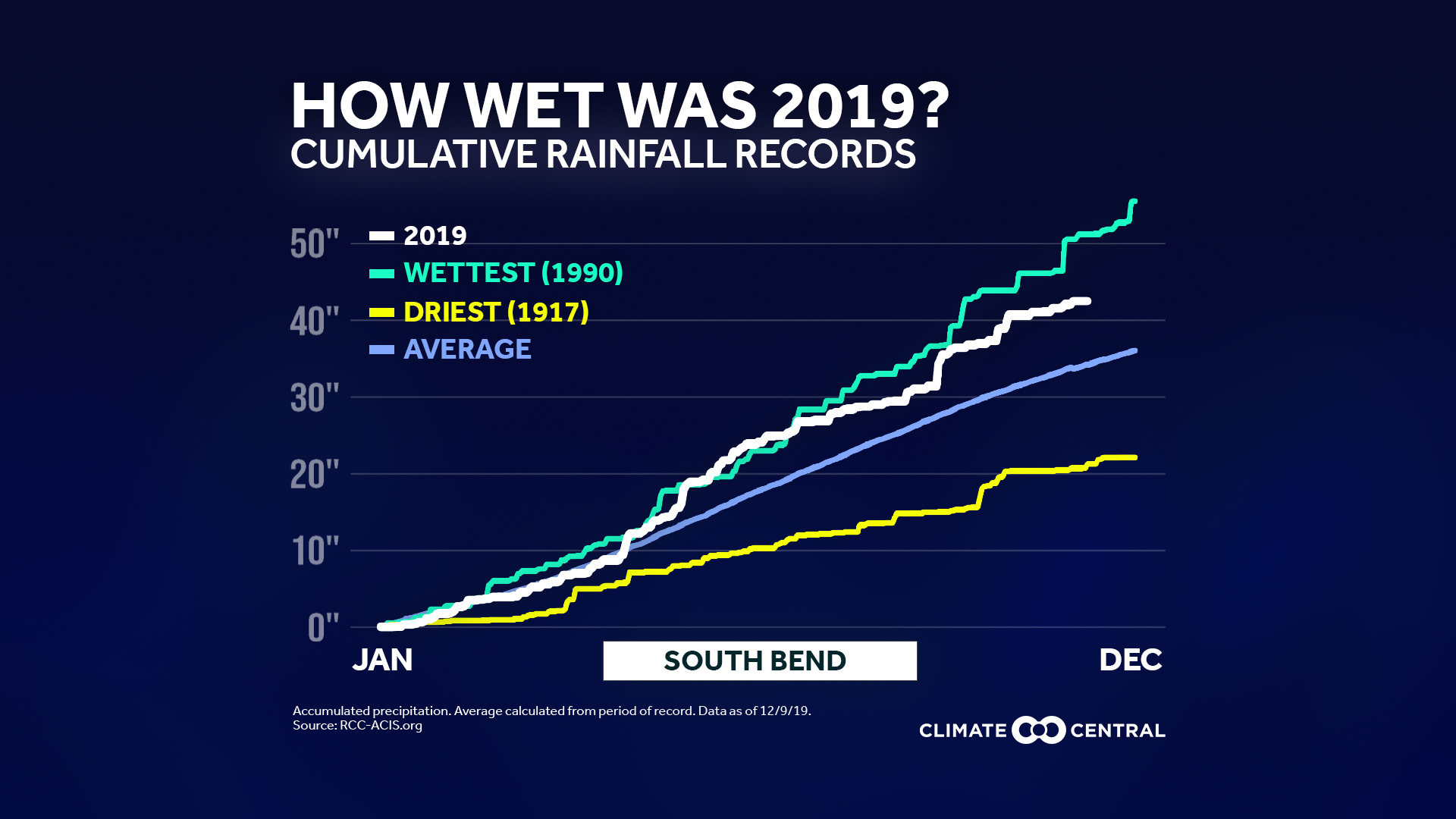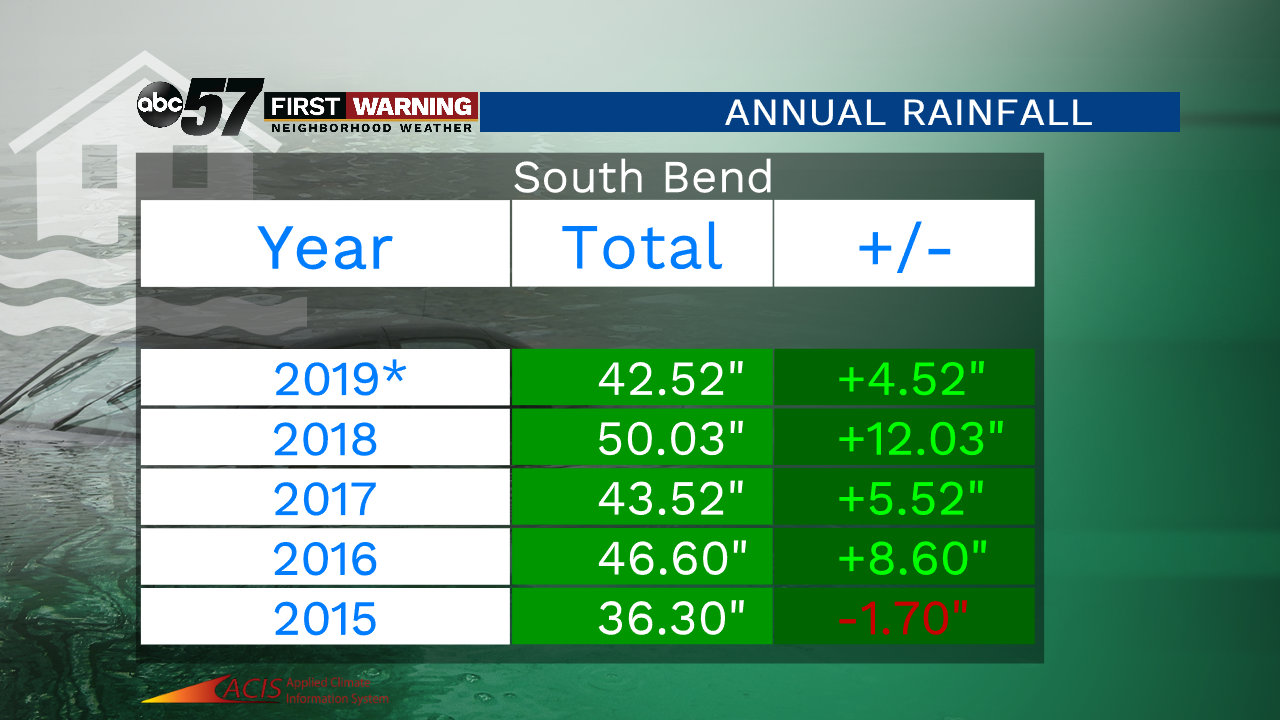Year in Review 2019: Beach Erosion
LAKE MICHIGAN – All the water had to go somewhere. Lake Michigan’s water levels are still near record high and beach erosion has been a major storyline in 2019.
Fall storms, strong wind and big waves aren’t anything new to Lake Michigan in fall and winter. This year they’ve had an added impact with water levels two to three feet higher than last year.
Two headline events over the past two months have left beaches battered in and bluffs eaten into and even some roads caving in, as SkyDrone57 saw near Stevensville.
The cities of new buffalo, St. Joseph and Benton Harbor are dealing with damage to infrastructure, water washing away sand, backing-up drains and flooding roads.
The cause of all this should come as no surprise, it’s been five years in the making, as lake levels have been rising steadily since 2014
The Great Lakes Basin has seen excessive rainfall and flooding for the past 5 years. South Bend’s recent record also reflects this trend with much above normal rainfall, including this past spring and two flooding events. Much of that water flows into the St. Joseph River, eventually draining into Lake Michigan.
Cites, counties and states are trying to figure out what they can do to control the water. Proposing studies from the army corps of engineers, green-lighting permits so landowners can build seawalls like in St. Joe or calling for a state of emergency to open up state and federal funds.
Dr. Patrick Lawrence specializes in coastal planning at the University of Toledo.
“There were a couple years we saw above average in the 90s but actually in the past 14 years or so, starting about the year 2000 to 2014-15, that's the longest extended period on record of average or low.”
He says the lakes go through these high and low cycles and we've just gone through an extremely long low cycle. So the record high water seems even worse. However we should think about more than a quick fix.
“Recovering and rebuilding, protecting property that's a short term fix” says Lawrence.
“ You can draw many more decades of experience in this country with flood plain management and flooding along major river systems. “
Planning what to rebuild, what to abandon and what to relocate will only get harder if the wet, high water cycle worsens next year.


















